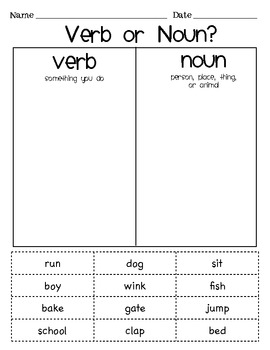


Now that you understand what a verb is and how it functions, let’s jump into predicates. It’s important to note that this is only possible with action verbs, not state-of-being verbs. Verbs like are or is are very popular in our daily writing!

When you say a statement such as go, the subject is implied to be whoever you’re talking to. These are referred to as imperative statements, which happen when you request, offer advice, issue a command, or give an instruction. Some common examples of this phenomenon include: Moreover, a verb is the only part of a sentence that is mandatory in English – any sentence without a verb is incomplete.Īs a result, some sentences consist of just verbs that can be considered full sentences. There are even less common verb forms like compound verbs and even vivid verbs that writers use! While different verbs may serve slightly different functions, the overall function of describing an action remains the same. There are many types of verbs in English, such as an action verb or linking verb. Your shoes are in the closet: the subject is in a state of being.Ryan was given a second chance: subject received the action.Gemma sang for my family: subject performed the action.Here are examples of all three uses of verbs: Remember, every sentence needs subject and verb agreement! Generally, a verb phrase indicates whether the main subject performs an action, receives an action, or is in a state of being. There are three main components that make up a sentence:Ī verb is a word that describes an action, occurrence, or state of being. Even if you think you know what a verb is, like the words pedaling or pedalling, it’s always good to get a refresher, especially when discussing verbs in the context of predicates.


 0 kommentar(er)
0 kommentar(er)
